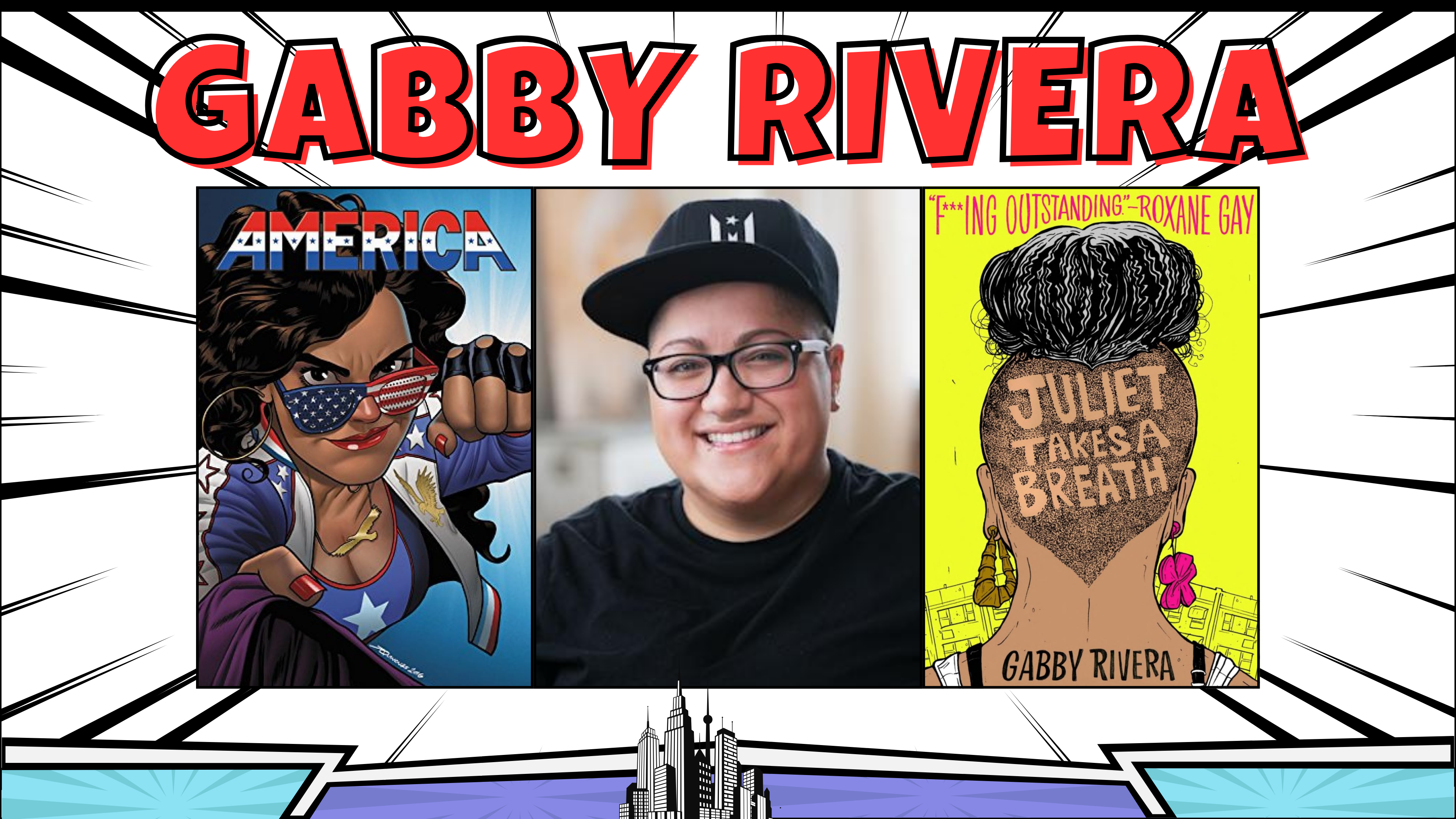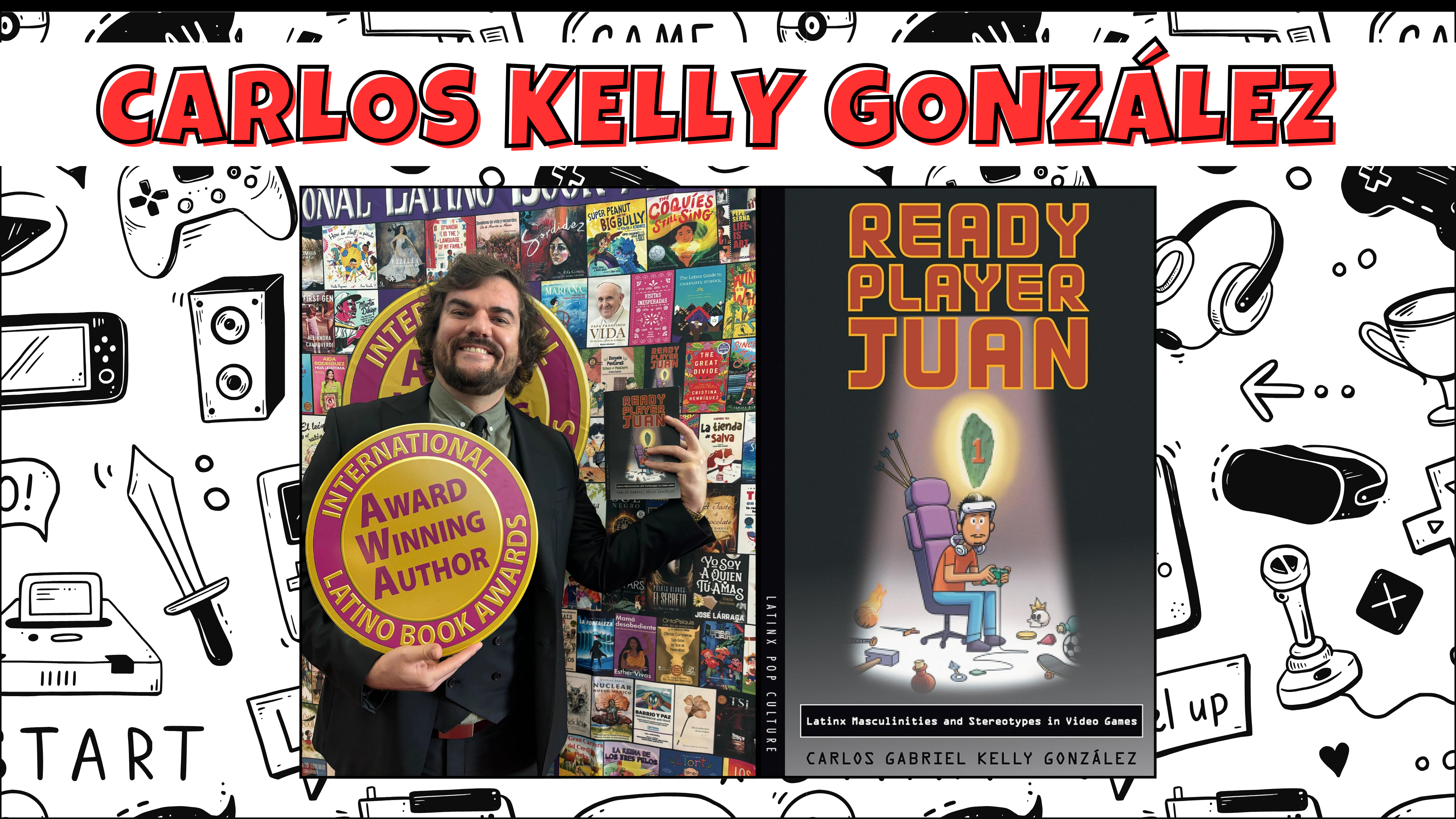Speakers and Artists

Gabby Rivera is a Bronx-born queer Puerto Rican babe on a mission to create the wildest, most fun stories ever. Gabby is the first Latina ever to write for Marvel comics, penning the solo series AMERICA about America Chavez, a portal-punching queer Latina powerhouse.
Gabby’s critically acclaimed debut novel Juliet Takes a Breath was called “f*cking outstanding” by Roxane Gay and was re-published by Penguin Random House in 2019. Mic named it one of the 25 essential books to read for Women’s History Month, and Latina magazine called it the “dopest LGBTQA YA book ever.”
Gabby presented before the United Nations in 2020 as an invited speaker to their Unstereotyping Alliance Conference, and she has collaborated with groups such as the Ford Motor Company, the Makers Women’s Conference and Somos Familia, to uplift joyful storytelling and the magic of queer diasporicans everywhere.
In 2022, Gabby became a Sundance Screenwriters Fellow and received an Advancing Justice Award from Catalyst California, alongside activist Dolores Huerta and politician Sheila Kuehl. She currently resides on the West Coast and hosts Joy Uprising, a podcast that brings together her favorite revolutionary humans to honor joy in a chaotic world.

Dr. Carlos Gabriel Kelly González (known to students as Profe) is the 2024 Gold Medal Award Winning Author of the International Latino Book Award for Best Academic Themed Book, College Level, English for Ready Player Juan: Latinx Masculinities and Stereotypes in Video Games. You can read more about his award and work through The English Broadside newsletter releasing soon!
Carlos earned his Ph.D. in English with an emphasis on Latinx and Video Game Studies from Ohio State University, and completed a two-year Postdoctoral Fellowship in Latinx Arts, Literatures, Cultures, or Religions at the Humanities Research Center at Rice University in Houston, Texas. Currently, he works at Kennesaw State University as an Assistant Professor of English, where he teaches classes on Latine literature, film, TV, and video games.
Carlos is an emerging scholar and one of the critical voices at the helm of US Latinx/e Video Game Studies. His research infuses Latine ways of seeing to analyze the storytelling in video games, relying on the insights and perspectives gained through living and growing up in the borderlands of Tijuana, Baja California, and San Diego, California.
Currently, Carlos is thrilled to be co-editing the first-ever collection of US Latinx video game studies, Coded Latinx: Latinx Gaming and Game Studies in North America, with Dr. Regina Marie Mills. In addition to his research, Carlos is also a published performance poet with his 2019 debut collection, Wounds Fragments Derelict, published with 2Leaf Press.